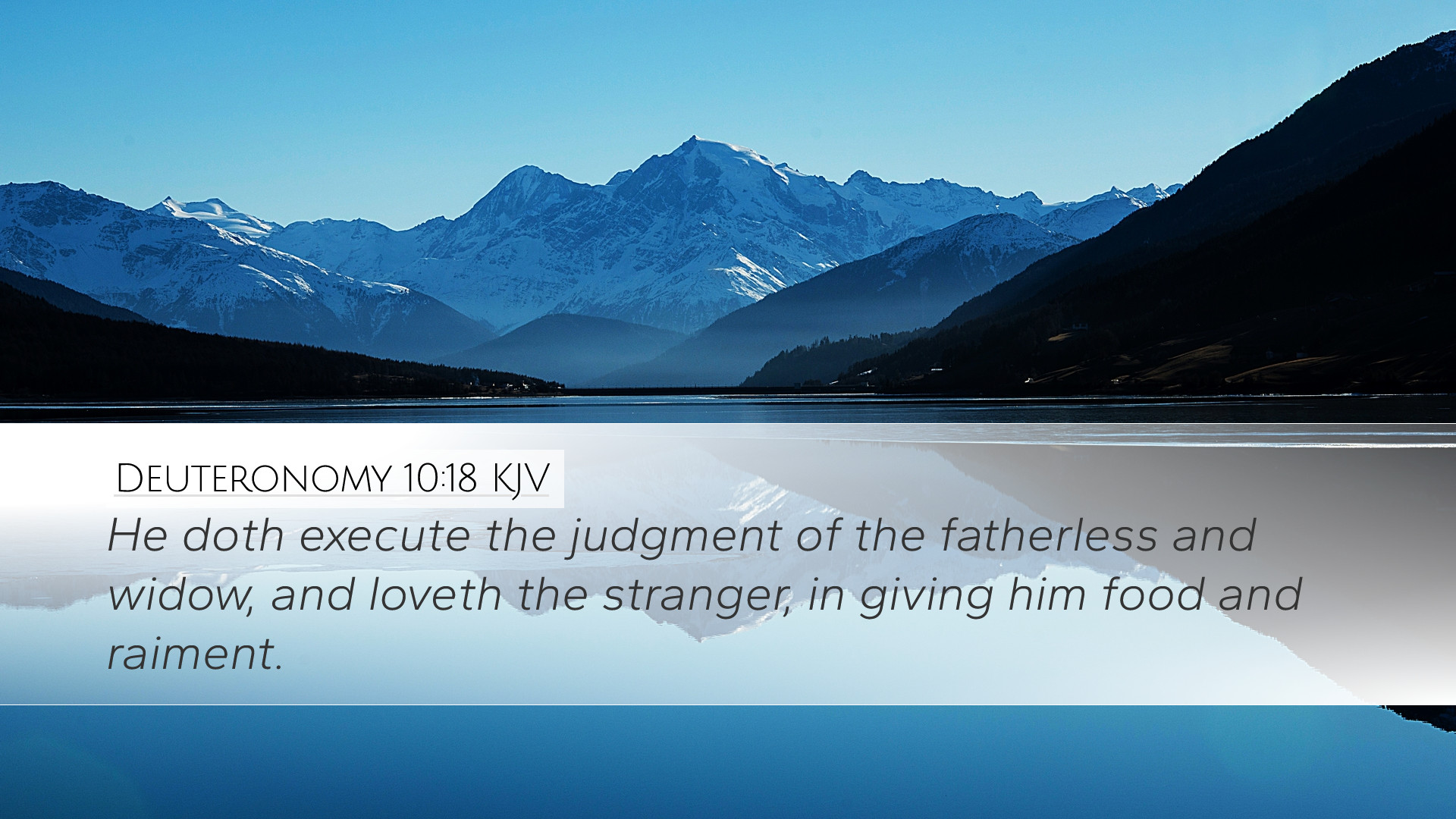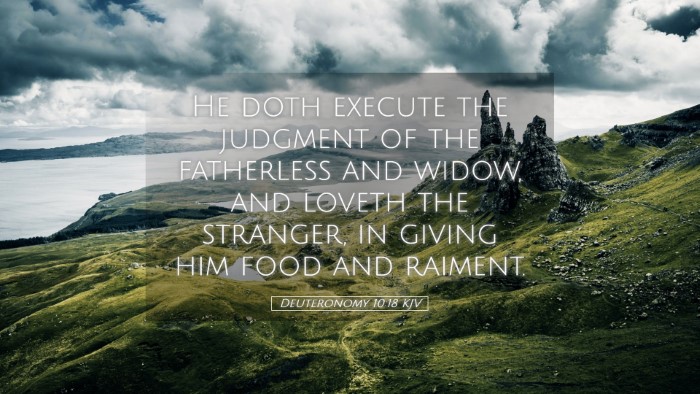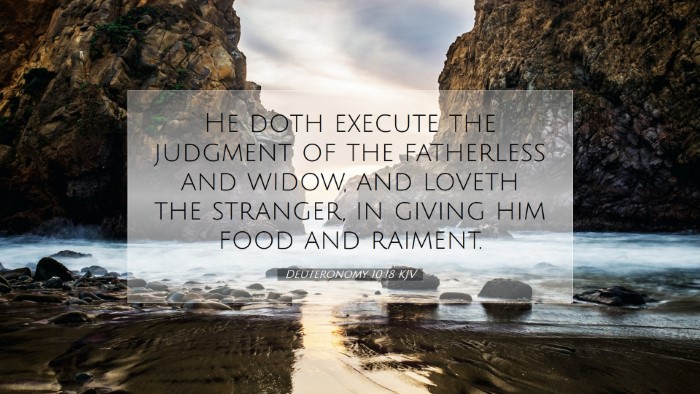Commentary on Deuteronomy 10:18
Verse: "He doth execute the judgment of the fatherless and widow, and loveth the stranger, in giving him food and raiment."
In Deuteronomy 10:18, we find a profound revelation of God's character, showcasing His divine justice and compassion towards the marginalized and oppressed. This commentary synthesizes insights from notable public domain commentaries, including those of Matthew Henry, Albert Barnes, and Adam Clarke, designed to benefit pastors, students, theologians, and Bible scholars.
Understanding the Context
The book of Deuteronomy serves as a restatement of the Law for a new generation of Israelites poised to enter the Promised Land. Moses reminds them of their covenant with God and the ethical implications of that relationship. Moreover, the instruction in this verse emphasizes the social responsibilities of God's people, illustrating how reverence for God translates into care for the vulnerable.
Key Themes in Deuteronomy 10:18
-
Divine Justice: God’s action is described as executing judgment on behalf of the fatherless and widow, reflecting a theme found throughout Scripture. God’s judgment is often associated with His protective care for those who are powerless.
-
Compassion for the Vulnerable: The mention of the widow and fatherless conveys God’s concern for those who are in dire need. Matthew Henry points out that this love for the helpless demonstrates the very nature of God, illustrating that His people should reflect this same characteristic in their communities.
-
Inclusiveness of God's Love: The verse highlights God’s love towards the stranger (foreigner), indicating His impartiality and the universal scope of His care. Albert Barnes emphasizes that in ancient Near Eastern cultures, the stranger often faced neglect or hostility, yet God instructs His people to be inclusive and considerate.
Commentary Insights
The Judgment of the Fatherless and Widow
Matthew Henry emphasizes the importance of social justice in this command, indicating that God personally oversees the welfare of those who cannot fend for themselves. The "fatherless" and "widow" are archetypes of vulnerability in the ancient world, representing those without protectors. By executing judgment, God not only defends their rights but also sets a standard for His people to protect the marginalized:
"The God of Israel hath a special care for those that have no helper; He doth execute judgment for them, not only against their oppressors but with a tender care for their needs."
Love for the Stranger
Albert Barnes interprets the inclusion of the stranger as a significant extension of God's mercy. This call to love the stranger is transformative, as it encourages the Israelites to remember their own past as sojourners in Egypt. They are urged to reflect this divine love in their interactions with non-Israelites. Barnes notes that:
"This compassion to the stranger should be based on the gracious truth that Israel was once strangers."
Food and Raiment
Adam Clarke provides a practical interpretation of God’s provisions for the fatherless, widow, and stranger. He posits that food and clothing represent basic human needs which should be met not only in a material sense but also in kindness and hospitality. The provision of these essentials is a divine command to demonstrate love in action. Clarke states:
"To provide for these, therefore, is to fulfill the will of God, showing that the love of Him translates into the love of neighbor."
Application for the Church and Society
The implications of Deuteronomy 10:18 are manifold for contemporary believers:
-
Call to Action: Churches are called to embody God's concern for social justice. Programs that support orphans, widows, and immigrants reflect obedience to this Scripture.
-
Theological Understanding: Engaging with these themes helps parishioners understand God’s broader plan of redemption, which intricately includes care for the marginalized.
-
Personal Reflection: Individually, believers are challenged to examine their attitudes and actions towards those who are in need and to ensure that their faith is active in works of compassion.
Conclusion
Deuteronomy 10:18 serves as a profound reminder of God’s justice and compassion. By executing judgment for the vulnerable and loving the stranger, God reveals His character and establishes a standard for His people. In a world where many still find themselves in similar vulnerabilities, the faithful must continue to enact the love and justice of God—guarding the rights of the oppressed and extending generosity to all, reflecting the heart of God in their lives.


